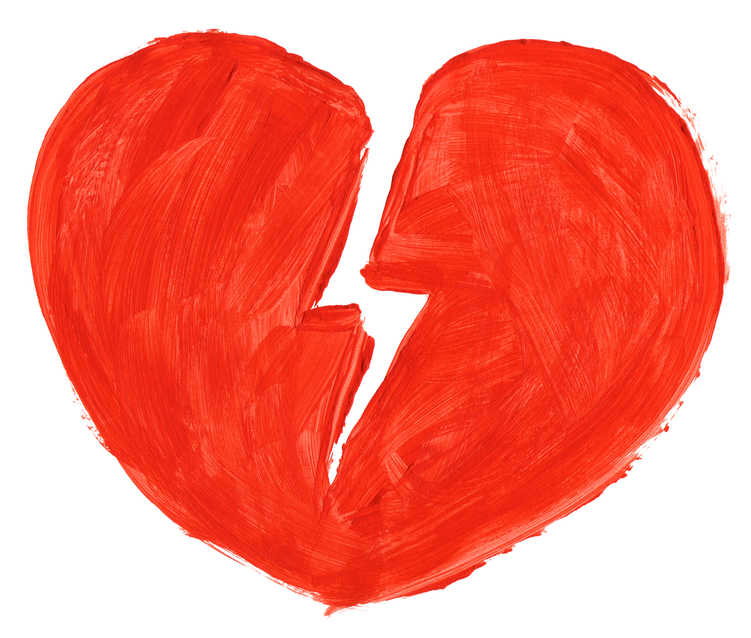Most of us have heard of someone who died of a broken heart. It turns out that ‘broken heart syndrome’ is a real thing although most people don’t die from it. It’s also called stress-induced cardiomyopathy and the less familiar takotsubo cardiomyopathy. According to the Mayo Clinic, the syndrome might be caused by a reaction of the heart to an extremely stressful emotional or physical situation such as unexpected news, job loss, divorce, a car accident or a natural disaster but a ‘good’ shock such as winning the lottery can also be responsible for triggering this response. What exactly happens to the heart is unclear, however researchers think a surge of stress hormones may be responsible. Some drugs have also been pegged as potential contributors.
People in the midst of a broken heart syndrome attack may think that they’re having a heart attack as they may feel chest pain and experience shortness of breath. While heart attacks are usually the result of a fatty buildup in the wall of a heart artery which narrows or blocks the artery, broken heart syndrome isn’t the result of narrowed or blocked arteries but researchers note that blood flow may be reduced through the heart arteries. The American Heart Association notes that during an attack of broken heart syndrome a part of the heart may temporarily enlarge and not pump blood well even as the rest of the heart continues to act normally.
The process for diagnosing broken heart syndrome is much the same as diagnosing a heart attack ranging from a standard physical to an electrocardiogram, echocardiogram and possibly a coronary angiogram in addition to typical blood tests and x-ray. Until a firm diagnosis is made, treatment is similar but once broken heart syndrome is confirmed medications that reduce the work the heart has to do will be prescribed. Initial recovery will be in the hospital but patients can go home after a few days to continue their recovery which is typically a couple of months.
The chance that a second episode of broken heart syndrome will occur is low however patients are generally advised to learn how to manage whatever stress may exist in their lives. While both men and women can experience broken heart syndrome, women over the age of 50 make up the majority of patients.
Anyone experiencing persistent chest pain, shortness of breath or a rapid or irregular heartbeat should call 911 immediately whether or not there has been a stressful event.






Add Your Voice
0 Comments
Join the Discussion